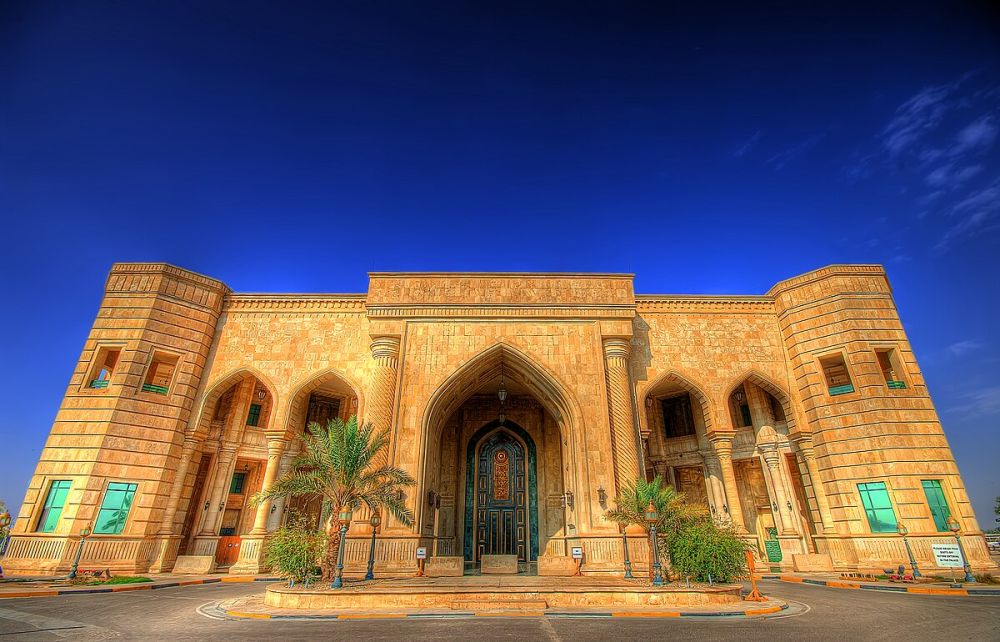

The Al Faw Palace, also known as the Water Palace, is an opulent structure located in Baghdad, Iraq. It was constructed during the rule of Saddam Hussein and symbolizes the grandeur of its era. The Palace, sitting amidst artificial lakes, was named after a significant victory in the Iran-Iraq war at the Al-Faw Peninsula.
The Palace has seen a fair share of history, with its walls bearing witness to the fall of Saddam Hussein during the Iraq War in 2003. Post the invasion of Baghdad, it became part of the Victory Base Complex, serving American military forces and the coalition as a Camp Victory headquarters. Its role during this time has contributed to its controversial yet intriguing historical significance for tourism.
Before the war, tourism in Baghdad, and Iraq as a whole, was minimal and largely limited by the political regime’s restrictions. Heritage sites like Babylon, Ur, and the Iraqi National Museum in Baghdad, along with palaces including the Al Faw Palace, were underexplored by tourists.
Following the war, efforts increased to revive Iraqi tourism and showcase the nation's rich cultural heritage. While security concerns and political instability continued to challenge the sector, the interest in historical sites like Al Faw Palace as a part of modern history began to grow.
In recent years, there has been a gradual increase in cultural tourism with visitors showing interest in Iraq’s ancient civilizations, as well as recent history. Tourism initiatives are now concentrating on areas that are considered stable, aiming to attract tourists interested in understanding Iraq's comprehensive history.
The Iraqi government, now considering tourism as a potential economic sector to be developed, has been working on improving infrastructure and ensuring better security to facilitate tourism growth. Tourist visas, though once quite difficult to obtain, have slowly become more accessible.
While the Al Faw Palace is not yet a mainstream tourist destination, it is gaining attention due to its intriguing past. The palace is a symbol of Iraq's recent history and the changing political landscape. As security improves, interest in visiting such contemporary historical sites is likely to increase among both domestic and international tourists looking to understand Iraq's complex history.
Bold Note: It is important to note that as of the knowledge cutoff in 2023, travel to Iraq still poses considerable risks, and interested visitors should meticulously seek up-to-date advice and information on the situation in the country before planning a visit to places like the Al Faw Palace.